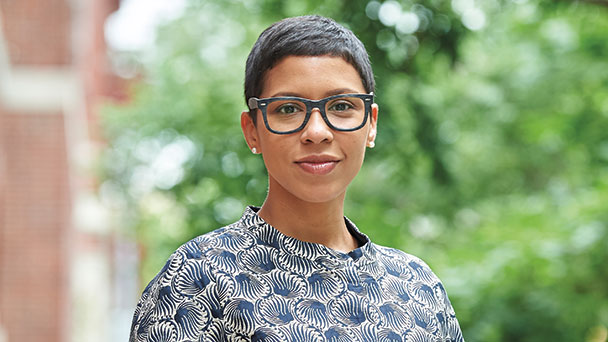Law Professor Delivers Scathing Testimony at Kavanaugh Confirmation Hearing
NYU Law Professor Melissa Murray testified against the confirmation of Judge Brett Kavanaugh to the Supreme Court.
Melissa Murray is a professor at NYU Law, specializing in constitutional law, family law, criminal law, and reproductive rights and justice.
September 14, 2018
During the fourth day of contentious Senate hearings last week, NYU Law Professor Melissa Murray issued a powerful testimony against the confirmation of Judge Brett Kavanaugh to the Supreme Court. Murray argued the judge poses a threat to the future of women’s rights.
Kavanaugh’s nomination to the Supreme Court has been controversial. In response, there have been protestors arrested at the hearings, document dumps about Kavanaugh’s time in the Bush administration and questions about beliefs that presidents should not be investigated or subpoenaed. Democrats have made calls to delay the hearing until after midterms in the event that they win majorities at the House of Representatives and the Senate. Republicans, along with Donald Trump’s administration, want Kavanaugh’s hearings to be as quick as possible, so he can be confirmed to the Supreme Court before midterm elections in November.
Murray’s testimony highlighted that if Kavanaugh is confirmed to the Supreme Court, he provides a fifth vote to significantly weaken the landmark case Roe v. Wade, which gave women access to abortions.
“There is nothing hyperbolic or hypothetical about this threat,” Murray told WSN over the phone. “Judge Kavanaugh’s nomination is part of a very concerted decades-long strategy to dismantle reproductive rights in this country, and he will provide the required fifth vote to do that.”
CAS senior and President of NYU Undergraduate Law Review Kate Maguire seconded Murray’s concerns.
“Kavanaugh represents an existential threat to women’s rights,” Maguire said. “As a woman, I’m extremely invested in these issues, but I don’t understand why others are not as invested; because this is not only an existential threat to women’s rights, but also an existential threat to liberty itself.”
Despite the criticism dogging the Kavanaugh hearings, some maintain that he should be confirmed to the Supreme Court and that the points raised in Murray’s testimony are partisan.
CAS junior and Vice-President of NYU College Republicans Bennett Kauffman is of this opinion.
“I don’t believe he poses a threat to anyone’s rights,” Kauffman said. “He doesn’t make policy and simply judges if existing policy is legal and in line with the Constitution. I also believe the ‘threat to women’s issues’ is more reflective of a Democratic campaign to block Kavanaugh than of any of his actual views.”
Judge Kavanaugh’s nomination and hearings reflect a wider trend in the political polarization and an urge for political expediency on both sides of the aisle. Even though it is now easier to confirm a judge to the Supreme Court because only a simple majority of 50 votes are needed to confirm the judge, hearings for Supreme Court nominees have become more controversial and politicized in the age of Trump. As for Professor Murray, she continues to teach at NYU Law and advocate for women’s rights in and outside of the classroom.
“Not only the NYU community should care about this issue,” Murray concluded. “It should concern anyone who cares about the aggrandizement of big power because they could have the ability to make decisions about the most private aspects of your life.”
Email Meghna Maharishi at [email protected].

























































































































































